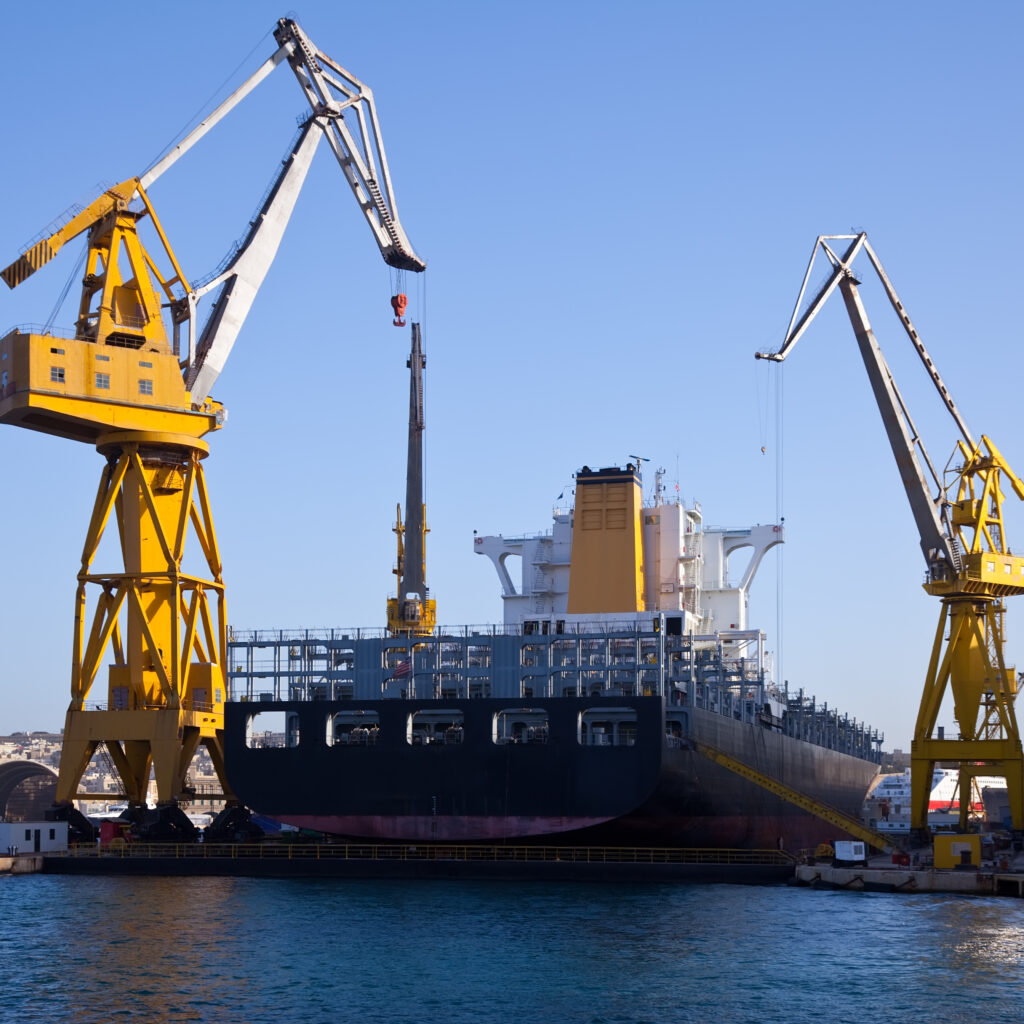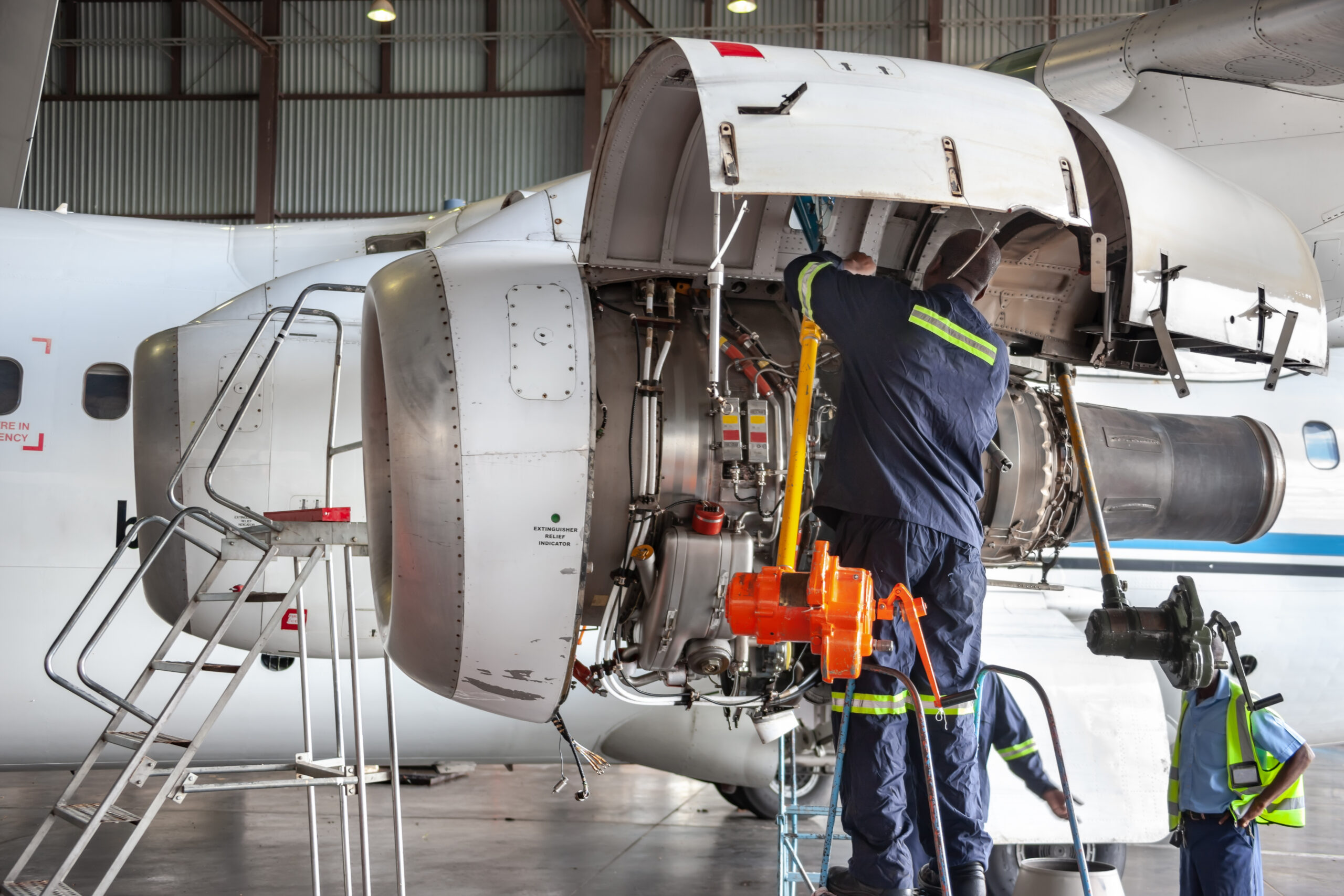Exclusive Shipbuilder ERP Insights at IFS Unleashed

Russel Moen
Manager, ERP Implementation
Tsunami Tsolutions
Visit Tsunami Tsolutions at IFS Unleashed October 14-18 in Orlando, Fla. for exclusive insights into new IFS ERP capabilities and enhancements for shipbuilders and maritime industries (book your appointment here).
Who are these insights for? All maritime industries operating in a complex project ERP environment including:
- Inland dry dock and repair services on shallow water draft vessels
- Tier one defense contractors
- Dry dock services consultants
- Engineer-procure-construct contractors
- Public shipyards like Norfolk, Portsmouth, Puget Sound and Pearl Harbor
- Commercial shipbuilders or diversified conglomerates
- Floating wind capacity or offshore rig or FPSO fabricators
- Port authorities
Shipbuilding is a niche industry compared to the broad manufacturing sectors enterprise resource planning (ERP) software and materials requirements planning (MRP) were initially designed for. Because of its focus on asset- and project-based industries, ERP from IFS early on became a proven solution for this sector.
As stated, shipbuilding is a niche industry, employing about 153,000 in 2023 according to the Bureau of Labor Statistics, and has been making a consistent recovery from 2008-2009 when employment dropped from just over 159,000 to just under 130,000 per the Federal Reserve. Headcounts are not likely to increase rapidly, not only because of a lack of skilled and managerial employees, but due to pressures to drive efficiency. This small headcount relative to other sectors also means ERP for shipbuilding needs to handle unique demanding project-centric requirements while offering only limited upside to an ERP vendor.
Yet shipbuilding ERP across these subindustries needs to meet unique requirements that go beyond even the program-centric approaches required by many aerospace and defense or industrial new product development and procurement processes. Constrained space for inventory, long and extended project timelines, heightened demand as defense and commercial needs shift and wildly fluctuating prices for inputs must all be addressed by ERP.
By way of example, the US Navy 2024 plan includes between 31 and 40 percent increase in battle fleet vessels over the last five years according to the Congressional Budget Office (CBO) This is just a snapshot though of expenditures in multi-year programs. In 2024 the US Navy will purchase six CVN-78 Ford class aircraft carriers, including the USS Gerald R. Ford at $13.3 billion was authorized in 2008 from dollars appropriated between 2001 and 2008.
That one craft will come in at $18.6 billion—27% more than when it was authorized in 2008.
Under various projections from the Navy and the Congressional Budget Office, inventory of battle force ships will increase from 290 today to between 318 and 365 by 2050. Whether naval and commercial vessel production increases or remains consistent, shipyards will be busy with either new vessel construction or refits and maintenance repair and overhaul (MRO) as owners sweat their existing marine assets and require lifecycle extensions and recertifications.
This degree of complexity is why Tsunami Tsolutions, in its engagements with customers and the software OEM, has helped evolve IFS Applications and IFS Cloud deeper into the shipbuilding sector, helping our clients:
- Reduce capital tied up in inventory
- Minimize warehousing and storage costs
- Increase inventory accuracy
- Eliminate non-value-added work
Get full details during your appointment with us during exhibition hours at IFS Unleashed. We will share details of a new whitepaper on the current state of IFS ERP for shipbuilding. Register here to get this whitepaper when it is released in the days after the conference.
Over decades in aviation, Tsunami Tsolutions has seen airlines, particularly smaller ones with fewer configuration engineers and mechanics, struggle to confidently verify that aircraft are configured with the right allowable parts.
Learn the the vulnerabilities A&D manufacturers face from their own aerospace and defense (ERP) software.
IFS Service Management and Maintenance Software Insights at IFS Unleashed By Zoltan Rakoczi-Nagy Implementation Consultant, Tsunami Tsolutions Visit Tsunami Tsolutions at IFS …
Tsunami Tsolutions has introduced a new WAVES Configuration Support Toolkit for aircraft operators, both commercial and defense.
Exclusive Shipbuilder ERP Insights at IFS Unleashed

Russel Moen
Manager, ERP Implementation
Tsunami Tsolutions
Visit Tsunami Tsolutions at IFS Unleashed October 14-18 in Orlando, Fla. for exclusive insights into new IFS ERP capabilities and enhancements for shipbuilders and maritime industries (book your appointment here).
Who are these insights for? All maritime industries operating in a complex project ERP environment including:
- Inland dry dock and repair services on shallow water draft vessels
- Tier one defense contractors
- •Dry dock services consultants
- Engineer-procure-construct contractors
- Public shipyards like Norfolk, Portsmouth, Puget Sound and Pearl Harbor
- Commercial shipbuilders or diversified conglomerates
- Floating wind capacity or offshore rig or FPSO fabricators
- Port authorities
Shipbuilding is a niche industry compared to the broad manufacturing sectors enterprise resource planning (ERP) software and manufacturing resource planning (MRP) was initially designed for. Because of its focus on asset- and project-based industries, ERP from IFS early on became a proven solution for this sector.
As stated, shipbuilding is a niche industry, employing about 153,000 in 2023 according to the Bureau of Labor Statistics, and has been making a consistent recovery from 2008-2009 when employment dropped from just over 159,000 to just under 130,000 per the Federal Reserve. Headcounts are not likely to increase rapidly, not only because of a lack of skilled and managerial employees, but due to pressures to drive efficiency. This small headcount relative to other sectors also means ERP for shipbuilding needs to handle unique demanding project-centric requirements while offering only limited upside to an ERP vendor.
Yet shipbuilding ERP across these subindustries needs to meet unique requirements that go beyond even the program-centric approaches required by many aerospace and defense or industrial new product development and procurement processes. Constrained space for inventory, long and extended project timelines, heightened demand as defense and commercial needs shift and wildly fluctuating prices for inputs must all be addressed by ERP.
By way of example, the US Navy 2024 plan includes between 31 and 40 percent increase in battle fleet vessels over the last five years according to the Congressional Budget Office (CBO) This is just a snapshot though of expenditures in multi-year programs. In 2024 the US Navy will purchase six CVN-78 Ford class aircraft carriers, including the USS Gerald R. Ford at $13.3 billion was authorized in 2008 from dollars appropriated between 2001 and 2008.
That one craft will come in at $18.6 billion—27% more than when it was authorized in 2008.
Under various projections from the Navy and the Congressional Budget Office, inventory of battle force ships will increase from 290 today to between 318 and 365 by 2050. Whether naval and commercial vessel production increases or remains consistent, shipyards will be busy with either new vessel construction or refits and maintenance repair and overhaul (MRO) as owners sweat their existing marine assets and require lifecycle extensions and recertifications.
This degree of complexity is why Tsunami Tsolutions, in its engagements with customers and the software OEM, has helped evolve IFS Applications and IFS Cloud deeper into the shipbuilding sector, helping our clients:
- Reduce capital tied up in inventory
- Minimize warehousing and storage costs
- Increase inventory accuracy
- Eliminate non-value-added work
Get full details during your appointment with us during exhibition hours at IFS Unleashed. We will share details of a new whitepaper on the current state of IFS ERP for shipbuilding. Register here to get this whitepaper when it is released in the days after the conference.
Over decades in aviation, Tsunami Tsolutions has seen airlines, particularly smaller ones with fewer configuration engineers and mechanics, struggle to confidently verify that aircraft are configured with the right allowable parts.
Learn the the vulnerabilities A&D manufacturers face from their own aerospace and defense (ERP) software.
IFS Service Management and Maintenance Software Insights at IFS Unleashed By Zoltan Rakoczi-Nagy Implementation Consultant, Tsunami Tsolutions Visit Tsunami Tsolutions at IFS …
LOCATIONS
655 Winding Brook Drive,
Glastonbury, CT 06033
MELBOURNE, FL:
1333 Gateway Drive
Suites 1018-1019
Melbourne, FL 32901
DAYTON, OH:
210 W National Rd, Suite 5,
Vandalia, OH 45377
LOUISVILLE, KY:
9850 Von Allmen Court, Suite 301
Louisville, KY 40241
Contact Us
Phone: +1.860.266.6885
© 2021 TSUNAMI TSOLUTIONS
Contact Us
Phone: +1.860.266.6885
LOCATIONS
655 Winding Brook Drive,
Glastonbury, CT 06033
MELBOURNE, FL:
1333 Gateway Drive
Suites 1018-1019
Melbourne, FL 32901
DAYTON, OH:
210 W National Rd, Suite 5,
Vandalia, OH 45377
LOUISVILLE, KY:
9850 Von Allmen Court, Suite 301
Louisville, KY 40241
© 2021 TSUNAMI TSOLUTIONS

